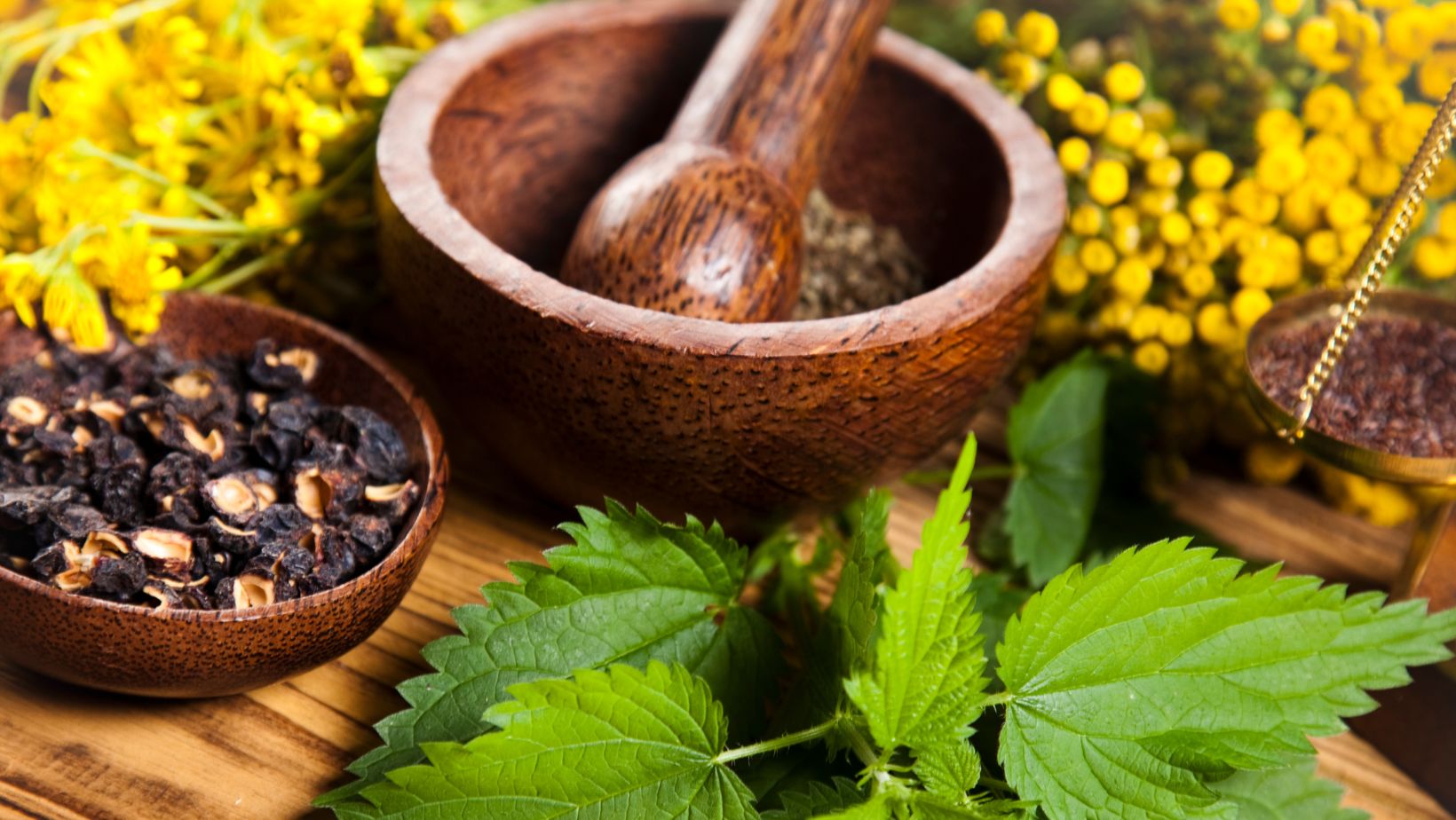Sinus infections can feel like a never-ending battle against a stuffy nose and relentless pressure. It’s like having a tiny marching band in your face, and trust us, no one enjoys that kind of concert. While over-the-counter medications often promise relief, they can leave you feeling like a zombie instead of a human. Enter herbal remedies—the natural superheroes ready to swoop in and save the day!
Overview of Sinus Infection
Sinus infections, also known as sinusitis, occur when the sinuses become inflamed and swollen. Symptoms often include facial pain, nasal congestion, and a reduced sense of smell. Many individuals experience headaches and pressure around the eyes and cheeks. Sinusitis can result from viral, bacterial, or fungal infections, with viral causes being the most common.
Chronic sinus infections can last for weeks or months, leading to persistent discomfort. The condition can stem from allergies, nasal polyps, or deviated septums. Some people find that environmental irritants contribute to their symptoms, making sinusitis more prevalent.
Diagnosis involves evaluating symptoms and sometimes conducting imaging tests. Physicians often recommend treatments ranging from over-the-counter pain relievers to nasal sprays. Antibiotics may be prescribed if a bacterial infection is suspected.
Natural remedies are gaining attention due to their potential effectiveness in alleviating symptoms. Herbal solutions can provide relief without the side effects associated with pharmaceuticals. Options such as eucalyptus oil and peppermint may improve sinus drainage and reduce inflammation. Additionally, saline nasal rinses can help clear mucus and soothe irritated nasal tissues.
Understanding the nature of sinus infections can guide individuals in seeking appropriate treatments. Awareness of symptom triggers plays a crucial role in managing the condition effectively. Embracing holistic approaches allows for a comprehensive strategy to address sinusitis.
Common Causes of Sinus Infection

Sinus infections, or sinusitis, often arise from various factors. Understanding these causes helps in addressing the discomfort effectively.
Allergies
Allergies frequently lead to sinus infections. Pollen, dust mites, and pet dander act as common triggers, causing inflammation and nasal blockages. This inflammation results in mucus buildup, which provides an environment for bacterial growth. Seasonal changes can exacerbate allergic reactions, making sinus infections more likely during specific times of the year. Managing allergies through avoidance or therapies greatly reduces the risk of developing sinusitis.
Infections
Infections represent a primary cause of sinusitis. Viral infections, including colds, frequently precede sinusitis, leading to inflammation of the sinus membranes. Bacterial infections may occur as a secondary complication when sinus drainage pathways become blocked, allowing bacteria to thrive. Fungal infections, while less common, can also contribute to chronic sinusitis, especially in individuals with weakened immune systems. Recognizing the type of infection aids in determining appropriate treatment strategies.
Structural Issues
Structural issues in the nasal passages can contribute to sinus infections. Deviated septums, nasal polyps, and enlarged turbinates restrict airflow and drainage, creating a breeding ground for infection. Such conditions may require medical evaluation to ensure proper diagnosis. Sometimes, surgical interventions may offer relief by correcting these structural abnormalities. Addressing these issues improves drainage and reduces the likelihood of recurrent sinusitis.
Herbal Remedies for Sinus Infection
Herbal remedies offer natural alternatives to alleviate sinus infection symptoms. These options not only reduce inflammation but also support overall sinus health.
Eucalyptus
Eucalyptus oil serves as a potent antifungal and antiviral agent. Inhalation of eucalyptus steam helps clear nasal passages and enhances sinus drainage. This method can significantly relieve congestion and pressure associated with sinusitis. Combining eucalyptus oil with a carrier oil for topical application may also reduce localized pain and swelling around the sinuses. Regular use may improve overall sinus function and respiratory health.
Peppermint
Peppermint contains menthol, which provides a cooling effect and helps open nasal passages. The oil can be used in steam inhalation or diluted in a carrier oil for topical application. Gargling with peppermint tea may soothe a sore throat often accompanying sinus infections. The anti-inflammatory properties of peppermint may also reduce sinus swelling and promote easier breathing. Consistent use of peppermint products can enhance relief from sinus discomfort.
Ginger
Ginger has known anti-inflammatory and antimicrobial properties. Consuming ginger tea or adding raw ginger to meals can boost immunity and reduce sinus infection severity. The warmth from ginger can also soothe throat irritation and reduce congestion. This root promotes the thinning of mucus, which eases sinus pressure. Increased intake of ginger may contribute to quicker recovery from sinus issues.
Turmeric
Turmeric contains curcumin, a substance with powerful anti-inflammatory effects. Adding turmeric to daily meals or consuming it in tea can enhance immune response during a sinus infection. This spice supports sinus health by decreasing inflammation and promoting drainage. Combining turmeric with black pepper improves absorption and efficacy. Regularly including turmeric in the diet may lead to improved sinus function and overall health.
How to Use Herbal Remedies
Utilizing herbal remedies effectively can significantly alleviate sinus infection symptoms. Various methods of application enhance the benefits of these natural treatments.
Methods of Application
Essential oils, like eucalyptus and peppermint, can be inhaled using steam therapy. Steaming involves boiling water, adding a few drops of essential oil, and inhaling the vapors to open nasal passages. Herbal teas made from ingredients such as ginger or turmeric can provide soothing effects and help reduce inflammation. Saline sprays mixed with herbal extracts also support sinus health by moistening nasal passages and clearing mucus. Preparing capsules with dried herbs allows for easy consumption and consistent benefits.
Dosage Recommendations
For essential oils, apply 2-3 drops diluted in a carrier oil for topical use, avoiding sensitive areas. Ingesting herbal teas typically involves 1-2 cups daily to maximize anti-inflammatory properties. Saline sprays can be administered as often as needed, generally 2-3 times a day for optimal relief. Capsules may contain 400-500 mg of dried herbs, taken 1-2 times daily. Following these dosage recommendations ensures safety while gaining the full advantages of herbal remedies for sinus infections.

Safety and Precautions
Using herbal remedies for sinus infections requires caution. Individuals should consult healthcare professionals before starting any new treatment, especially if they have pre-existing conditions. Pregnant or breastfeeding individuals must seek medical advice, as not all herbs are safe during these periods.
Dosage plays a crucial role in the effectiveness and safety of herbal remedies. Specific recommendations include 2-3 drops of essential oils diluted in carrier oils for topical application and 1-2 cups of herbal tea daily. Consuming 400-500 mg of dried herbs in capsule form, taken 1-2 times daily, ensures users remain within safe limits.
Allergic reactions can occur with certain herbs. Eucalyptus oil, for instance, may cause skin irritation in sensitive individuals. Peppermint oil should be used cautiously, as it can trigger allergic responses in some people. Conducting a patch test before full application is advisable.
Monitoring for side effects is vital when incorporating new herbs. Users should be alert for symptoms like nausea, dizziness, or headaches. If any adverse reactions arise, discontinuation of the herb is necessary and consultation with a healthcare provider is recommended.
Also, quality of herbal products varies significantly. Purchasing from reputable manufacturers guarantees that products do not contain harmful additives. Checking for third-party testing can provide assurance regarding the efficacy and safety of herbal remedies.
Staying informed about interactions with prescribed medications is essential. Certain herbs may potentiate or diminish the effects of medications. Keeping healthcare providers updated regarding all supplements taken allows for safer, more effective treatment plans.
Consult Healthcare Professionals
Herbal remedies offer a promising avenue for those seeking relief from sinus infections. By harnessing the power of nature’s ingredients like eucalyptus oil ginger and turmeric individuals can effectively manage symptoms and promote overall sinus health. These natural alternatives not only alleviate discomfort but also minimize reliance on conventional medications that may cause unwanted side effects.
As the interest in holistic approaches grows it’s essential to prioritize safety and consult healthcare professionals before introducing new treatments. With the right guidance and knowledge individuals can navigate their sinus issues more effectively and enjoy a better quality of life. Embracing these herbal solutions could lead to a more balanced approach to wellness while addressing the challenges of sinus infections.

